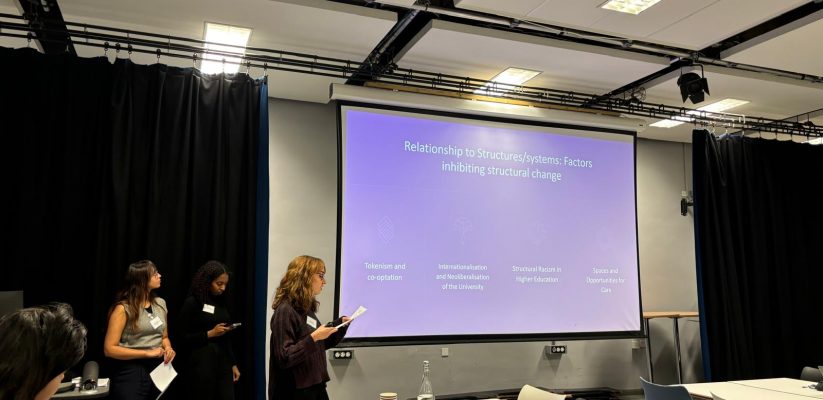Kelsea Costin
On November 8th, myself and my colleagues Fatima, Kyra, Esra and Ozge attended the Reimagining Higher Education: Journeys of Decolonising conference 2024 held at UCL, at the Institute of Education. The one-day conference built on the accomplishments of last year’s conference, held at DeMontfort University, Leicester, which I also had the pleasure of attending alongside my colleagues Moonisah, Amy, Lara and Kyra. This year’s conference offered the opportunity to learn about and engage with the different approaches and activities taking place within, as well as outside of, UK higher education institutions. I particularly liked that the conference called for abstracts from students, staff and professional services, making space for an array of knowledges and practices which we can all learn from and prompting us to build stronger and deeper relationships with one another in our decolonial journeys.
The Opening Keynote by Professor Andrew P. Daire from the University of Wisconsin-Milkwaukee immediately captivated me. In this talk, he reiterated the importance of pursuing anti-racist approaches and acknowledging coloniality within the university as a means of changing the culture of the institution, quoting Angela Davis’s infamous quote: ‘In a racist society, it is not enough to be non-racist. We must be anti-racist’. This talk stimulated a sense of togetherness and eagerness to learn from each other and work towards decolonial efforts as a collective. It created an atmosphere of mutual understanding and openness, which was carried throughout the day, and I was extremely excited to embark on the journey of the conference.
The day proposed an enriching programme, with a schedule consisting of sessions on different themes of decolonisation. These sessions delved into topics such as culture and institutional change, co-creation, decolonial research and staff development, to name a few. The conference also promoted the aspect of decolonial work as something which is personal and happens outside of the university, as presented in one of the sessions: ‘The intersect of wellbeing and decolonisation’. I really enjoyed this aspect, and although I was not able to attend this session due to presenting in our own, I thought it was extremely important for spaces like these to exist at conferences as they create zones of reflection and enable us to acknowledge the ways in which our personal and political lives intersect with our work in the academy.
The first stream of sessions I attended alongside my colleagues Ozge and Esra was centred on co-creation. We decided to attend these sessions due to our own positionalities as student co-creators, and we were eager to learn more about how others have approached student-staff partnerships in their respective institutions. These talks were incredibly insightful. We learned from a range of perspectives on issues of racism, inclusivity, ableism, student engagement and belonging within the university and how these can be approached through co-creation. Notably, the session by Richard Hall from De Montfort University on Muslim Student Engagement and Retention in relation to the impact of student loans highlighted the significance of cultural and spiritual beliefs to students’ choices and engagement in the academy. I thought that this was an extremely important topic of discussion, and enlightened me to think about how co-creation projects have the potential to examine student engagement through the lens of student-driven knowledge, decentring the traditional structures of top-down knowledge in universities.
Next, we had lunch. During the initial introduction to the conference, we were encouraged to speak to three people who we did not know. Hence, I thought of this as an opportunity to make some new connections! I spoke with a PhD student who was doing her research in Sri Lanka, and with another student who goes to university in an area which is not far from where I live. Taking this time to get to know people at the conference was both engaging and fun, and it created comfortability. As students, we could all relate to each other and the excitedness of embarking on our academic journeys. We also shared our delight at feeling welcomed into an event which is traditionally dominated by staff and their work. We felt that our voices and work were acknowledged in this space.
Our presentation took place in the third session on Culture Change. Whilst I eagerly waited to present our work, I was absorbed in the fascinating topics presented beforehand. Our stream included a diverse range of topics. My favourite talk from our session was centred on decolonising the academic library, presented by Kaye Towlson and more from DeMontfort University. I really enjoyed hearing the experiences of professional services and librarians in this talk, as they play such a crucial role in the production and accessibility of knowledge. It was incredibly insightful to learn the ways in which they were working towards decolonising their collections, including through developing policy and guidelines, decolonising the reading list, and focussing on artists, researchers and authors of colour. At the end of the session, it was our time to present. Our talk was called: ‘Understanding relationships in and for social justice: a university-wide survey’. It centred on the survey we distributed as a student-staff team in the Spring on decolonising the curriculum at Westminster, and explored the significance of knowledge, structures and student-staff relationships to social justice efforts at the university, alongside the importance of decolonial relationality in the academy.
I am delighted to have been given the opportunity to attend this conference, and most crucially in a student-staff partnership team which was an area of focus at the conference. I feel that coming together with other academics, both students and staff, and discussing our shared ambitions towards decolonial futures in our universities has had a huge impact on me. Going forward, I feel inspired by this conference, and I look forward to continue learning from others in these spaces, and having more of these conversations in the future!
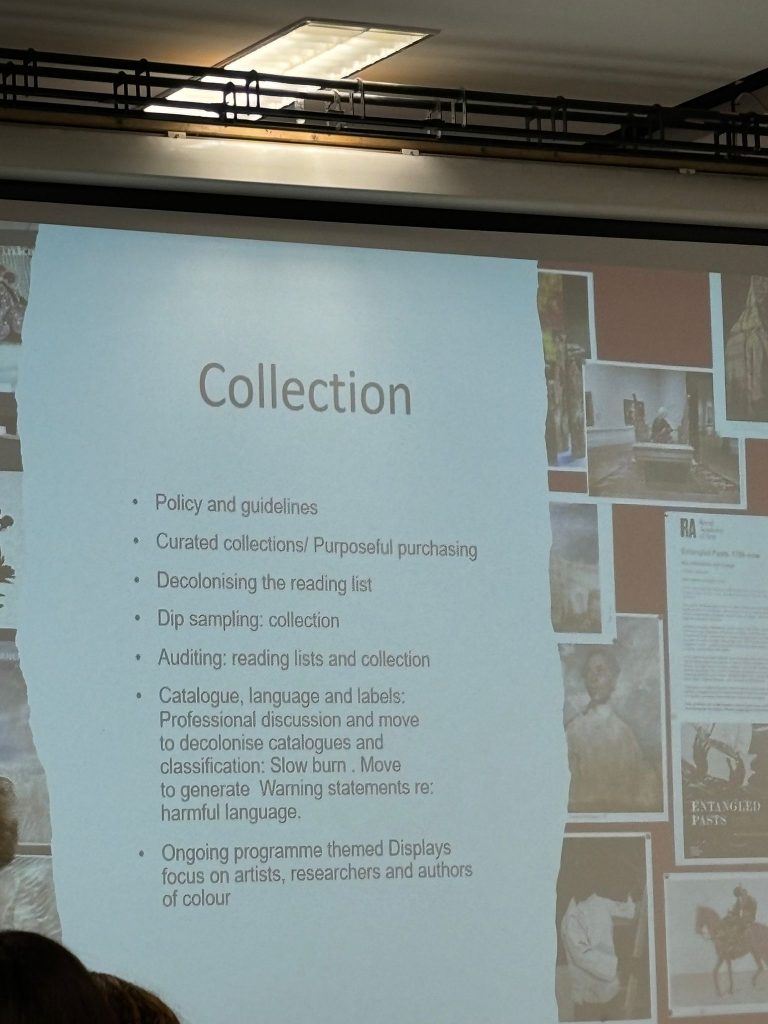
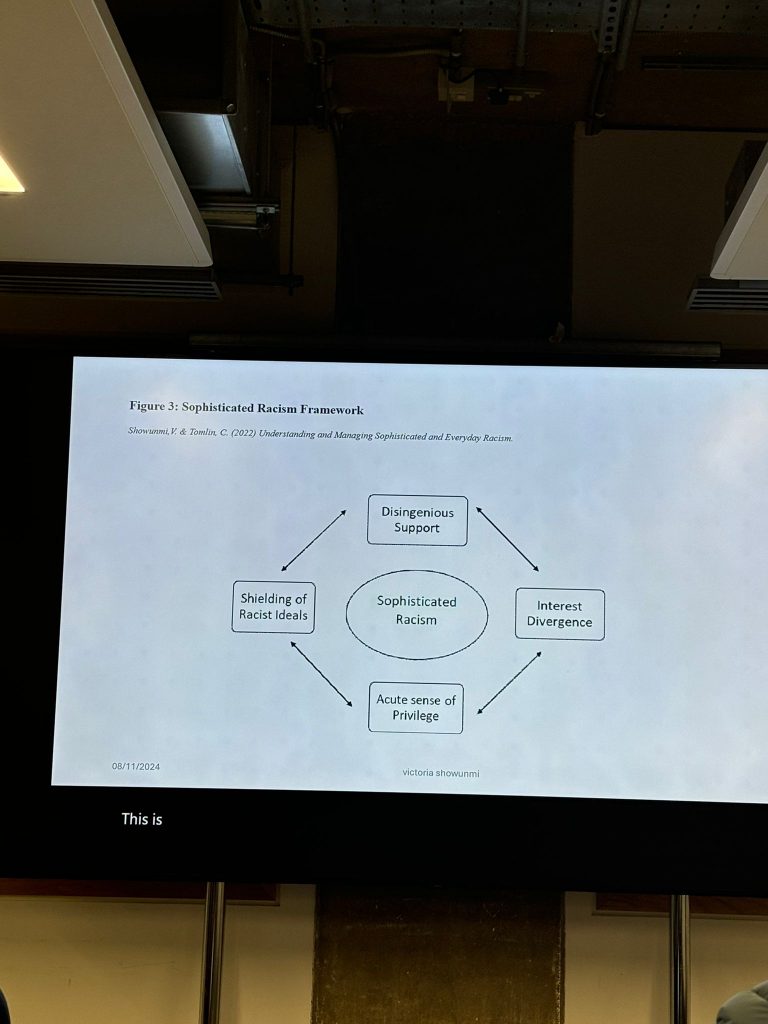
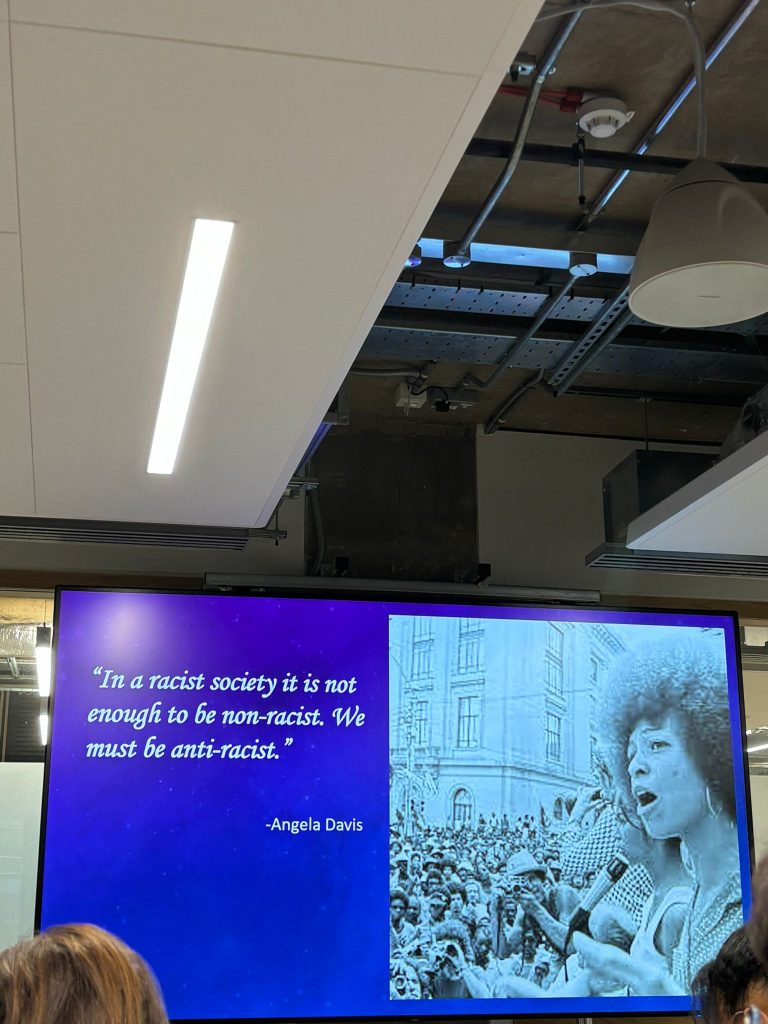
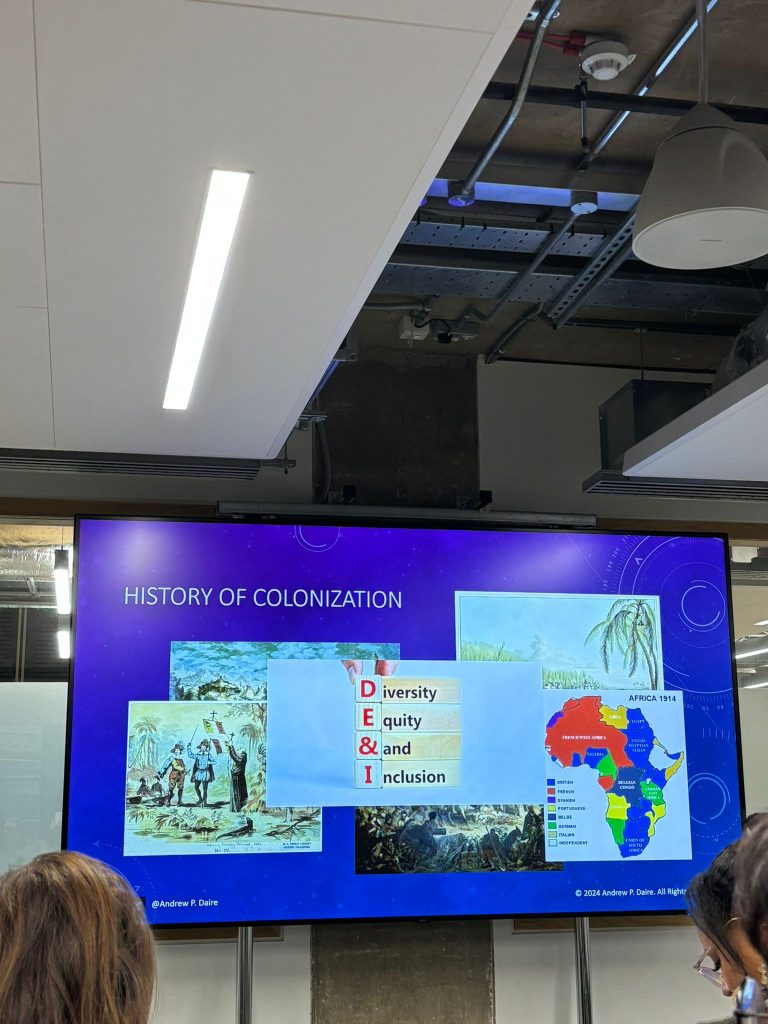
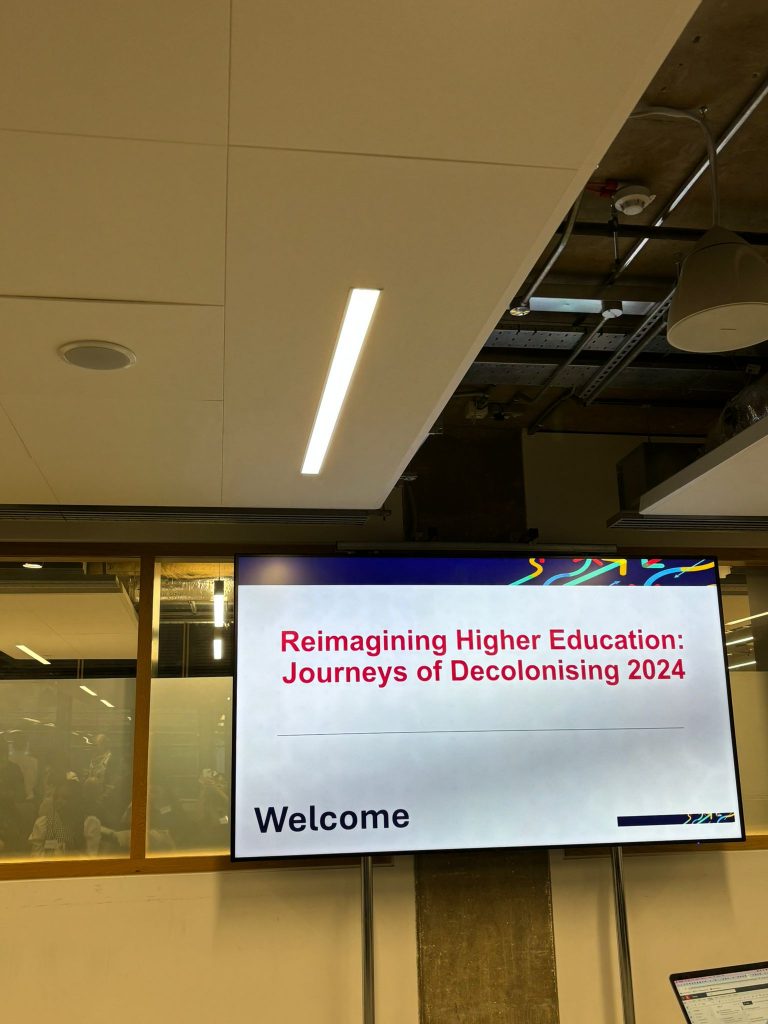
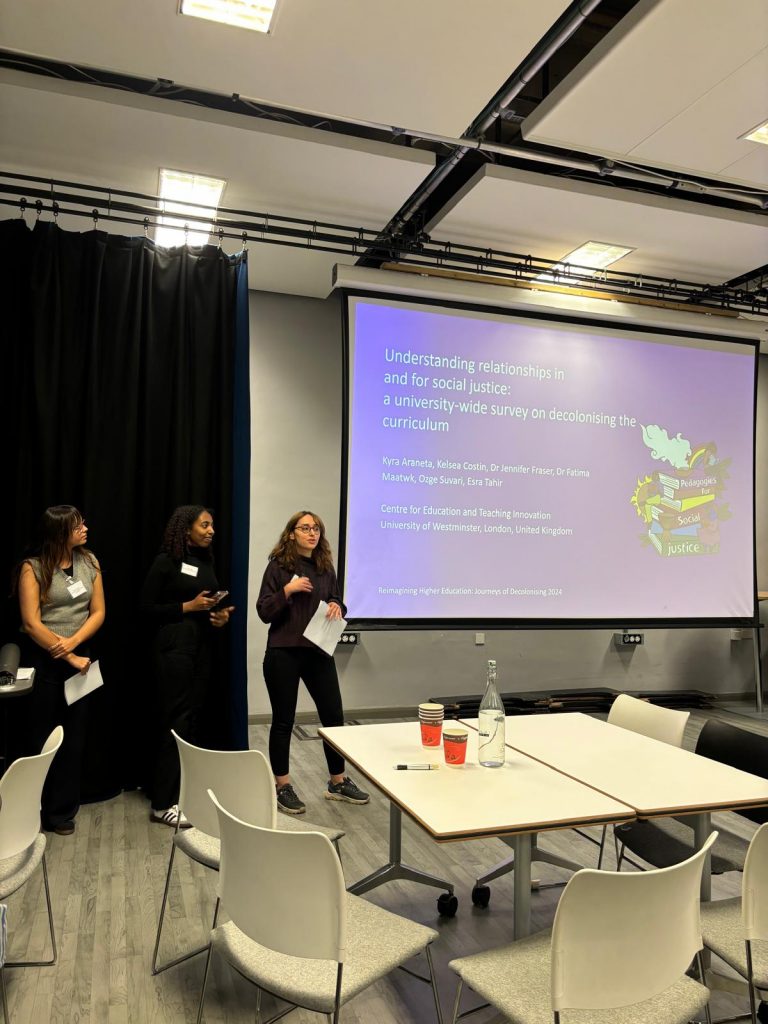
- Reflections on Pedagogy of the Oppressed (Chapter 1) - 17 February 2025
- Education As a Site of Creative Liberation - 17 February 2025
- Reflection on Pedagogy of the Oppressed and Westminster’s Student Partnership Framework - 17 February 2025
